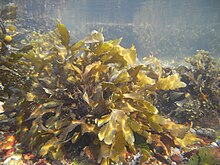Kappa‐carrageenan sinus rinses reduce inflammation and intracellular Staphylococcus aureus infection in airway epithelial cells
Catherine Bennett BMedSc Mahnaz Ramezanpour PhD Clare Cooksley PhD Sarah Vreugde MD, PhD Alkis James Psaltis MD, PhD
First published: 04 June 2019 https://doi.org/10.1002/alr.22360
Funding sources for the study: ENT Technologies Pty, Ltd.
Potential conflict of interest statement: A.J.P.: ENT Technologies Pty, Ltd, Aerin Medical, Inc, Lyra Therapeutics, and Medtronic, consultant.

Abstract
Background
Chronic rhinosinusitis (CRS) is a common disease, often refractory to conventional antimicrobial treatment. In this study we investigate the antimicrobial and anti‐inflammatory effects of adding kappa‐carrageenan to a commercially available sinus rinse.
Methods
Kappa‐carrageenan was added to Flo CRS and Flo Sinus Care sinus rinses and applied directly to air‐liquid interface cultured primary human nasal epithelial cells (HNECs) from 10 CRS patients. Inflammatory markers were measured using enzyme‐linked immunosorbent assay. Kappa‐carrageenan‒supplemented sinus rinses were applied to human bronchial epithelial cells (HBEs) in the presence of different Staphylococcus aureus strains to observe the effect on intracellular infection rates.
Results
Flo Sinus Care with kappa‐carrageenan rinse solutions resulted in a marked reduction of interleukin‐6 (IL‐6) production by HNECs from CRS patients (p = 0.007). Both Flo CRS and Flo Sinus Care rinses significantly reduced the S aureus intracellular infection of HBEs (p < 0.0001). The addition of kappa‐carrageenan to both Flo CRS and Flo Sinus Care rinses further reduced the intracellular infection rate by an average of 2%.
Conclusions
The commonly used sinus irrigation product Flo Sinus Care with added kappa‐carrageenan reduces IL‐6 production by HNECs in vitro. Flo CRS and Flo Sinus Care rinses significantly reduced S aureus intracellular infection rates of HBE cells. Our findings may have clinical relevance for CRS patient management.
Catherine Bennett BMedSc Mahnaz Ramezanpour PhD Clare Cooksley PhD Sarah Vreugde MD, PhD Alkis James Psaltis MD, PhD
First published: 04 June 2019 https://doi.org/10.1002/alr.22360
Funding sources for the study: ENT Technologies Pty, Ltd.
Potential conflict of interest statement: A.J.P.: ENT Technologies Pty, Ltd, Aerin Medical, Inc, Lyra Therapeutics, and Medtronic, consultant.

Abstract
Background
Chronic rhinosinusitis (CRS) is a common disease, often refractory to conventional antimicrobial treatment. In this study we investigate the antimicrobial and anti‐inflammatory effects of adding kappa‐carrageenan to a commercially available sinus rinse.
Methods
Kappa‐carrageenan was added to Flo CRS and Flo Sinus Care sinus rinses and applied directly to air‐liquid interface cultured primary human nasal epithelial cells (HNECs) from 10 CRS patients. Inflammatory markers were measured using enzyme‐linked immunosorbent assay. Kappa‐carrageenan‒supplemented sinus rinses were applied to human bronchial epithelial cells (HBEs) in the presence of different Staphylococcus aureus strains to observe the effect on intracellular infection rates.
Results
Flo Sinus Care with kappa‐carrageenan rinse solutions resulted in a marked reduction of interleukin‐6 (IL‐6) production by HNECs from CRS patients (p = 0.007). Both Flo CRS and Flo Sinus Care rinses significantly reduced the S aureus intracellular infection of HBEs (p < 0.0001). The addition of kappa‐carrageenan to both Flo CRS and Flo Sinus Care rinses further reduced the intracellular infection rate by an average of 2%.
Conclusions
The commonly used sinus irrigation product Flo Sinus Care with added kappa‐carrageenan reduces IL‐6 production by HNECs in vitro. Flo CRS and Flo Sinus Care rinses significantly reduced S aureus intracellular infection rates of HBE cells. Our findings may have clinical relevance for CRS patient management.
Δεν υπάρχουν σχόλια:
Δημοσίευση σχολίου